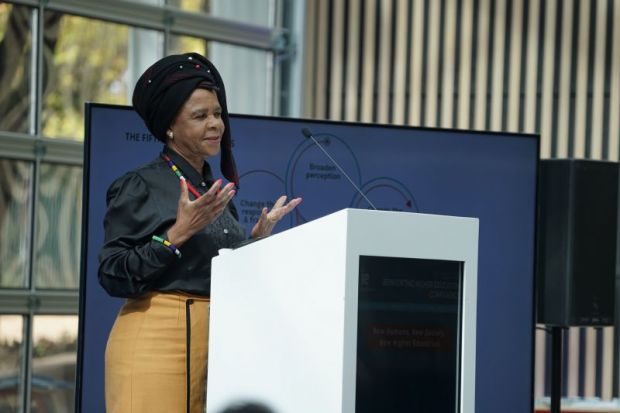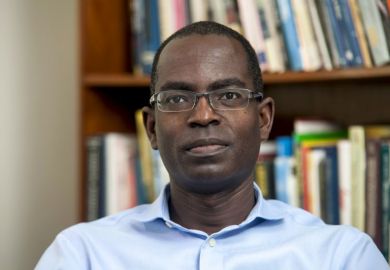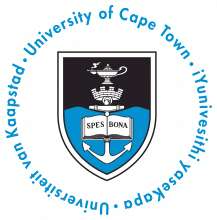Higher education must abandon hierarchical teaching styles and free itself from the stranglehold of global elites if it is to effectively tackle global challenges, according to the first black woman to lead a South African university.
Mamphela Ramphele, former vice-chancellor of the University of Cape Town and co-president of the Club of Rome, told the Reinventing Higher Education conference in Cape Town that to follow through on the mission of the summit would require transformative change.
“Nothing short of a human revolution would be an appropriate response to the multiple crises humanity faces,” she said.
“I would like us to take a leaf from ancient wisdom that when in deep trouble, go back to the roots.”
The former anti-apartheid activist told delegates at the conference, held in association with IE University, that universities today “reflect the fragmentation in our lives as human beings”.
Dr Ramphele, also a former managing director of the World Bank, said higher education was disconnected from the everyday lives of most people, having been increasingly captured by the elite and focusing more and more on seeking enormous financial resources to fund the pursuit of rarefied technological advances.
“Inconvenient truths about ecological damage which threaten the very existence of Mother Nature continue to be ignored or marginalised in the pursuit of prosperity for the least number of people,” she warned.
Describing modern universities as “legacies of a bygone era of monastic, hierarchical silos of teaching and learning”, she called on the sector to move away from archaic, hierarchical ways.
On the bright side, Dr Ramphele said, new solutions and new higher educational systems were already emerging – and the reinvention of higher education provided an opportunity.
She urged delegates to focus on answering uncomfortable questions about their shared vision for the world they would like to live in. Everyone involved in higher education, she went on, needed to interrogate their understanding of what comprises learning – including considering new methods, new skills and new values that are necessary to live in a world of change.
Dr Ramphele said also called for educational spaces to be redesigned, noting that in Africa people had to sit in a circle to have a proper conversation.
“The redesign of higher education teaching and learning environments and spaces is absolutely essential,” she said.
“Most current lecture halls in most colleges are relics of a bygone eras of top-down teaching, hierarchy and ‘I know, and you must listen’.”
Sue Harrison, UCT’s acting vice-chancellor, said many problems facing higher education were the result of complacency.
“We have talked about complacency in this country for many years, but we need to be mindful of that – sitting back and not addressing what we need to address,” she said.
“We can talk about that same complacency the world over, which is why we have so many of the global crises we are sitting in – around energy and climate and many aspects.”
Register to continue
Why register?
- Registration is free and only takes a moment
- Once registered, you can read 3 articles a month
- Sign up for our newsletter
Subscribe
Or subscribe for unlimited access to:
- Unlimited access to news, views, insights & reviews
- Digital editions
- Digital access to THE’s university and college rankings analysis
Already registered or a current subscriber?











